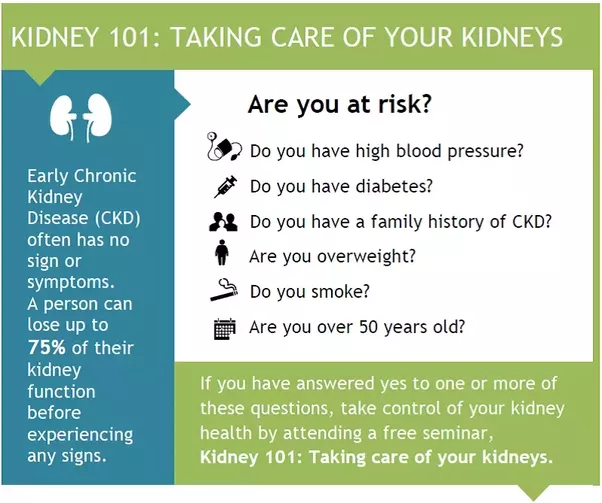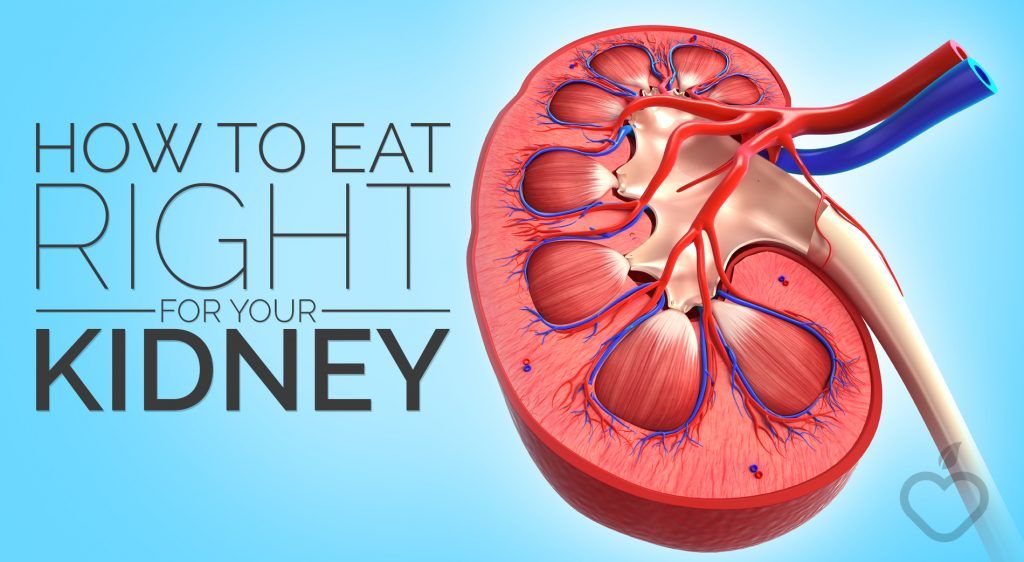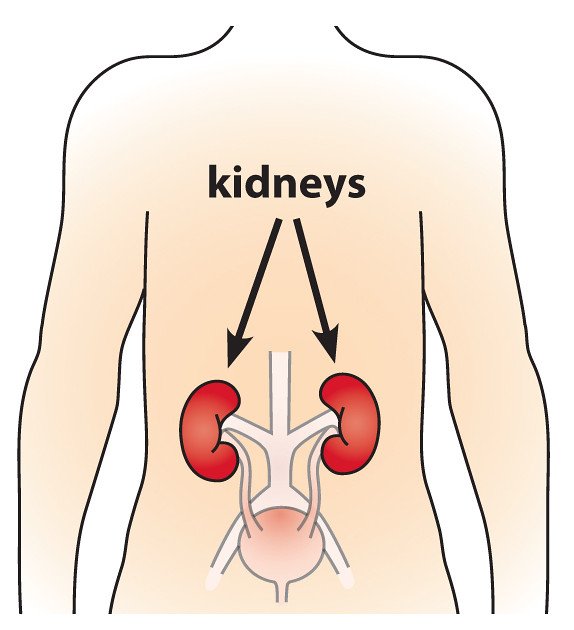The Role Of Kidneys In The Human Body
Although many people dont think about their kidneys, they are some of the hardest-working organs in the body. The kidneys are responsible for filtering more than 120 quarts of blood every single day. The waste products that are filtered out are quickly eliminated by the body in the form of urine, composed of excess salts, fats, toxins and liquid. ;The ureter is connected to the kidney , and flows down into the bladder, where urine is stored and then eliminated from the body.
Aside from assuring that waste is properly disposed of, kidneys are also critical to the balance of electrolytes in our body. Minerals like sodium, potassium and calcium, among others, help to maintain water balance in the system, as well as optimize nervous system communication. Without the kidneys functioning, or present, the body would not be able to function. The composition of our blood must remain stable, if we are to remain healthy, and the kidneys guarantee that happens.
Furthermore, kidneys produce key hormones that the body requires, such as hormones for strengthening bones, creating new red blood cells and maintaining blood pressure. Clearly, while the kidneys are often overlooked behind major organs like the brain, heart and lungs, they are just as critical to our survival.
How Does Blood Flow Through My Kidneys
Blood flows into your kidney through the renalartery. This large blood vessel branches into smaller and smaller blood vessels until the blood reaches the nephrons. In the nephron, your blood is filtered by the tiny blood vessels of the glomeruli and then flows out of your kidney through the renal vein.
Your blood circulates through your kidneys many times a day. In a single day, your kidneys filter about 150 quarts of blood. Most of the water and other substances that filter through your glomeruli are returned to your blood by the tubules. Only 1 to 2 quarts become urine.
Can Dialysis Keep You Alive If Your Kidney Are Removed
There are two types of dialysis peritoneal dialysis and hemodialysis. In the former, your blood is actually cleaned inside the body, by injecting a fluid into the abdominal cavity that will absorb waste products in the blood. This liquid can then be removed, along with the toxins. The more intensive and common form is hemodialysis, in which the blood is removed from the body, filtered, and then returned to the body. This process can take hours to complete, and must be done 2-3 times per week.
Depending on the intricacies of your hemodialysis treatment, you may be able to perform it at home, but this often requires more frequent filtering.;Essentially, it is possible to live without your kidneys, but the need for dialysis is a life-changing medical condition that you will need for the rest of your life. Dialysis can often be used for years or decades, and is the only option for many people who are waiting for a healthy kidney. While some people do eventually get a kidney through donor programs, the lists are quite long, with thousands;of people waiting for a life-saving;organ.
Related ArticlesRelated Articles
Our best advice is to keep your kidneys healthy, and if you think there is a problem with one of your internal organs, get it checked immediately, so you can either have peace of mind, or access to early medical care. Your kidneys may only be the size of your fists, but they are incredibly important to life as we know it!
Don’t Miss: Pineapple Kidney Stones
Myth: Dialysis Is The Treatment For Kidney Disease
FACT: Dialysis is a method of purification of blood of waste products which are not removed because of kidney failure. Dialysis in fact does not do anything for kidney disease. Dialysis is only required when kidney function decreases to less than 15 ml/min and patients cannot sustain life meaningfully. In earlier stages of chronic kidney disease, one slows down the rate of progression of kidney disease to delay or avoid the need for dialysis or kidney transplantation.
What If I Was Born With Only One Working Kidney

In general, most people with a single, healthy kidney have few problems. However, some long term problems have been seen in some people.
In some people who were born with a single kidney, or had a kidney removed during childhood, there is a chance of some slight loss in kidney function later in life. This usually takes 25 years or more to happen. There may also be a chance of having high blood pressure later in life. However, the loss in kidney function is usually very mild, and life span is normal. Most people with one kidney live healthy, normal lives with few problems.
In other words, one healthy kidney can work as well as two.
You May Like: Constipation Kidney Stones
Facts About Kidney Health
Kidneys are one of the most vital organs in the body which excrete the toxic waste products formed as a result of metabolism in the body. Kidneys also maintain the fluids and salt balance of the body, and make hormones that help produce red blood cells, promote bone health and regulate blood pressure.Chronic Kidney Disease is the most common kidney-related ailment, and involves the gradual irreversible loss of kidney function over a period of years.Diabetes, and hypertension are major risk factors for chronic kidney disorder which is growing rapidly amongst Indians. Other risk factors for kidney diseases include obesity, family history of kidney disease, and excessive use of pain killers, active smoking, heart disease and older age.On World Kidney Day, Dr Vijay Kher, Chairman, Kidney and Urology Institute of Medanta Hospital, Gurugram debunked the popular myths surrounding kidney disease and renal health, and shared better prevention and management tips of the condition.
Signs You May Have Kidney Disease
More than 37 million American adults are living with kidney disease and most dont know it. There are a number of physical signs of kidney disease, but sometimes people attribute them to other conditions. Also, those with kidney disease tend not to experience symptoms until the very late stages, when the kidneys are failing or when there are large amounts of protein in the urine. This is one of the reasons why only 10% of people with chronic kidney disease know that they have it, says Dr. Joseph Vassalotti, Chief Medical Officer at the National Kidney Foundation.
While the only way to know for sure if you have kidney disease is to get tested, Dr. Vassalotti shares 10 possible signs you may have kidney disease. If youre at risk for kidney disease due to high blood pressure, diabetes, a family history of kidney failure or if youre older than age 60, its important to get tested annually for kidney disease. Be sure to mention any symptoms youre experiencing to your healthcare practitioner.
You May Like: How To Know If You Have Bad Kidneys
What About A Kidney Transplant
According to the National Institute of Diabetes and Digestive and Kidney Health, almost 200,000 people in the United States have a functioning transplanted kidney.
A kidney transplant is only done when you have no functioning kidneys. The risks of the procedure and side effects of the medications youll need for the rest of your life outweigh the small increase in function you get from a second kidney.
If your solitary kidney gets injured or sick and stops working, you might be eligible for a transplant.
No matter how many kidneys you started with, you only receive one kidney in a transplant. The transplanted kidney usually gets bigger and works harder over time. Eventually, your transplanted kidney will function almost as well as two kidneys.
Stage 2 Kidney Disease Symptoms
EGFR readings at stage 2 are still considered within a normal kidney function range, so it can be difficult to diagnose this form of chronic kidney disease.
If you have elevated eGFR levels, you may also have high creatinine levels in your urine if you have kidney damage.
Stage 2 CKD is largely asymptomatic, with most noticeable symptoms not appearing until your condition has progressed to stage 3.
Possible symptoms include:
Don’t Miss: Grapes For Kidney Stones
Taking Care Of Your Remaining Kidney
One kidney is enough to filter your blood to keep it clean and healthy.;If you have one kidney removed, as long as your other one works normally there should be no ill effects.;
Your GP should monitor your blood pressure regularly . This is to make sure that the remaining kidney stays healthy. If your blood pressure increases, they can give you medicine to control it.
But its still important that you take care of your remaining kidney.
Symptoms Of Kidney Disease
Kidney disease is called a silent disease as there are often no warning signs. People may lose up to 90 per cent of their kidney function before getting any symptoms. The first signs of kidney disease may be general and can include:
- high blood pressure
- changes in the amount and number of times urine is passed
- changes in the appearance of urine
- blood in the urine;
- puffiness of the legs and ankles
- pain in the kidney area
- tiredness
- have a family history of kidney failure
- have a history of acute kidney injury
- are of Aboriginal or Torres Strait Islander origin.
Recommended Reading: Is Grape Juice Good For Kidney Stones
When Should I Call The Doctor
A nephrologist receives special training in kidney evaluation and treatment. You may benefit from a kidney specialists expert opinion if:
- You have trouble keeping your blood pressure levels in a normal range, even with medication.
- Your blood sugar levels fluctuate widely.
Last reviewed by a Cleveland Clinic medical professional on 01/11/2018.
References
Monitoring And Controlling Your Blood Pressure

High blood pressure can damage blood vessels in your solitary kidney. If your kidneys blood vessels are damaged, they may no longer work properly. When this happens, the kidney is not able to remove all wastes and extra fluid from your body. Extra fluid in the blood vessels can raise your blood pressure even more, creating a dangerous cycle, and cause more damage leading to kidney failure.
If your health care professional diagnoses you with high blood pressure, he or she may prescribe one or more blood pressure-lowering medicines. Medicines that lower blood pressure can also significantly slow the progression of kidney disease.
Two types of blood pressure-lowering medicines, angiotensin-converting enzyme inhibitors;and angiotensin receptor blockers , may be effective in slowing your kidney disease progression while also lowering your blood pressure. A health care professional may also prescribe a diuretic.
Don’t Miss: Celery Juice Kidney
Can Stage 2 Kidney Disease Be Reversed
Occasionally, kidney disease may be found to be caused by some temporary problem, such as a side effect of a medicine or a blockage. When the cause is identified, its possible that kidney function can improve with treatment.
Theres no cure for kidney disease that has resulted in permanent damage, including mild cases diagnosed as stage 2. However, you can take action now to avoid further progression. Its possible to have stage 2 CKD and prevent it from progressing to stage 3.
Keeping Your Kidneys Healthy
There are a number of things you can do to keep your kidneys healthy, including:
- If you have diabetes, make sure that your blood sugar control is excellent. Follow your doctors advice about insulin injections, medicines, diet, physical activity and monitoring your blood sugar.
- Control high blood pressure. Have your blood pressure checked regularly. Medications used to lower blood pressure , such as ACE inhibitors or angiotensin blockers, can slow the development of kidney disease.
- If you have one of the risk factors for kidney disease, have a kidney health check at least every two years .
- Treat urinary tract infections immediately.
- Control blood cholesterol levels with diet and medications if necessary.
- Drink plenty of water and choose foods that are low in sugar, fat and salt, but high in fibre. Stick to moderate serving sizes.
- Do not smoke.
- Drink alcohol in moderation only.
- Stay at a healthy weight for your height and age.
- Try to exercise moderately for at least 30 minutes a day.
Read Also: Is Pomegranate Juice Good For Your Kidneys
What Your Kidneys Do
Healthy kidneys:
- Keep a balance of water and minerals in your blood
- Remove waste from your blood after digestion, muscle activity, and exposure to chemicals or medications
- Make renin, which your body uses to help manage your blood pressure
- Make a chemical called erythropoietin, which prompts your body to make red blood cells
- Make an active form of vitamin D, needed for bone health and other things
What Are The Symptoms Of Kidney Failure
In early stages of kidney disease, many people experience few or no symptoms. Its important to note that chronic kidney disease can still cause damage even though you feel fine.
Chronic kidney disease and kidney failure can cause different symptoms for different people. If your kidneys arent working properly, you may notice one or more of the following signs:
- Fatigue
- Poor appetite or metallic taste of food
Also Check: Is Pineapple Good For Kidney Stones
Can You Drink Alcohol With Only One Kidney
Many of your bodys organs are affected by alcohol including your kidneys. Drinking in moderation usually wont harm your kidneys.
Alcohol increases the amount of urine you produce but reduces your kidneys ability to filter blood. This disrupts the fluid and electrolyte balance in your body, and you become dehydrated.
Without enough fluid in your body, the cells in your organs, including your kidneys, cant function properly. Eventually it may cause permanent damage.
Your liver is also important for maintaining fluid and electrolyte balance. Liver damage from excessive alcohol interferes with this balance, making it even harder for your kidneys to work correctly.
The risk of kidney damage is even higher for heavy drinkers who also smoke.
Alcohol has this effect whether you have one or two kidneys, but it may lead to kidney failure more quickly when you only have one functioning kidney.
How Your Kidneys Work
Your kidneys play a vital role in your body. They work hard to clean your blood and create urine for you 24 hours a day. Without kidney function, you would struggle to process toxins and eliminate waste, and this would have a devastating impact on your health.
Its important to keep your kidneys healthy so they can perform these important tasks throughout your life. If your kidneys are not healthy, other organs in your body may suffer and this could lead to further health complications.
You May Like: Constipation And Kidney Stones
Myth: You Need 2 Kidneys To Survive
FACT: Most of us are born with two normally functioning kidneys, but most people with one healthy kidney lead a normal life. In some cases, people may have one kidney on ground of donation or removal of one kidney due to cancer or severe infection with or without stones. A single healthy kidney can perform the essential functions of both.
Why Do We Have Two Kidneys

Brooke Huuskes – Lecturer in Human Anatomy, Physiology Anatomy & Microbiology, La Trobe University
This piece is part of the The Conversation’s Curious Kids series for children.
Why do we have two kidneys when we can live with only one? Question from the students of Ms Morris Grade 5 class, Ringwood North Primary School, Victoria.
This is a really great question. The answer is scientists are not completely sure but we do have some theories. That is often the case with science.
Most of the animals you see above ground on Earth today, including humans, are the same on both sides. We have two eyes, two ears, and even two nostrils. Scientists gave this a fancy name called bilateral symmetry.
If you look in the mirror and draw an imaginary line down the middle of your reflection you will see that you have an arm and a leg on each side. If you had goggles that let you see your insides, you would see that you also have a kidney and a lung on each side too.
But it wasnt always like this. And some;animals still only have one kidney.
Around 500 million years ago, our long-lost relatives that were living in the ocean decided to leave the water to walk and live on land.
This was a very important moment in our history because on land, animals could change to grow a very complicated body with all of the important organs that are inside you, including two kidneys.
Two kidneys better than one?
Growing up with one kidney
Needing an extra kidney
Recommended Reading: Is Pineapple Good For Kidney Stones
Myth: If You Have Kidney Disease You Will Know It
FACT: Common symptoms of kidney disease include swelling of the eyes and feet, frothy urine or blood in the urine. However, most kidney diseases do not show symptoms in the early stages. Thus, detecting kidney disease in early stages can only be done through screening individuals who are at high risk. These include people who are elderly and/or obese, and/or have a family history of diabetes, kidney disease or heart disease.
How Do I Adjust To Dialysis
Starting dialysis often means creating a new normal for yourself and your family. Thereâs a lot to think about, from choosing a treatment option, to finding new ways to enjoy your favorite activities, to managing a new diet. The FIRST30 program is all about helping you through this period of adjustment. Here, youâll find videos featuring people like you, who once were new to dialysis, as well as a checklist of important questions to ask your health care team.
Also Check: 4mm Kidney Stone Actual Size